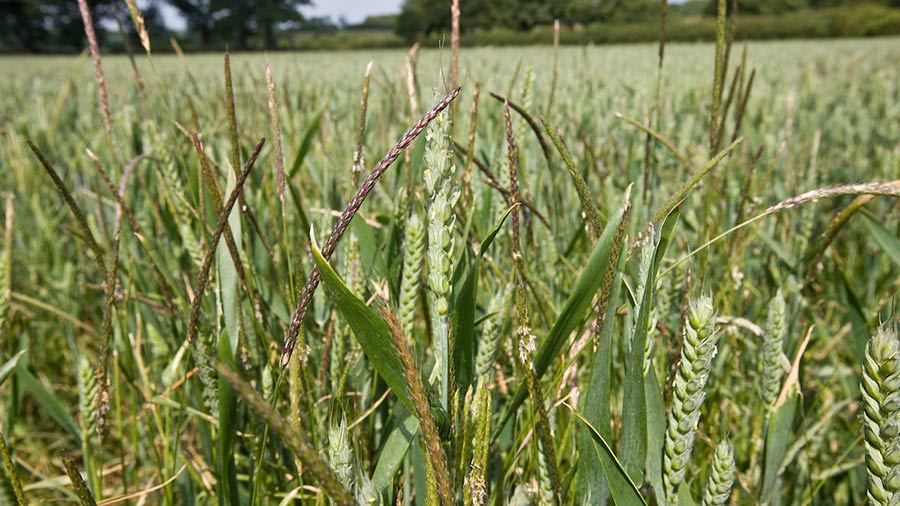Zero tolerance approach to blackgrass is working, says grower
 © Tim Scrivener
© Tim Scrivener A robust zero-tolerance approach is helping to beat blackgrass crop infestations on arable farmer Andrew Ward’s farm in Lincolnshire.
Mr Ward, who owns Roy Ward Farms at Glebe Farm in Leadenham, said he started with zero tolerance for blackgrass about nine years ago, and the approach is now really paying off.
See also: Visit our Know How centre for news and advice on blackgrass control
Trials by Agrii have shown 100 ears/sq m of blackgrass can reduce winter wheat yields by 1t/ha.
“A lot of people will tolerate some blackgrass in fields. I just cannot understand that. It’s so yield-robbing,” he said.
“The moment you allow any blackgrass to set, the following year it becomes a massive infestation.
“All you do when you get the combine out is spread it across the farm.”
Mr Ward says late drilling of winter cereals is critical to beat blackgrass.
“For the past 10 years, we have not got the drill out of the shed until 20 October for winter cereals,” he explained.
For his zero-tolerance approach, Mr Ward now uses 30% less herbicides and employs hand-rogueing gangs to get on top of the troublesome grassweed, paying £15.83/hour a worker.
Hand-rogueing costs start from £20/ha to £120/ha for the worst infected fields, but Mr Ward says this is money well spent, especially compared to expensive chemistry, which may not be effective.
He keeps maps for every block of land and field and records how much time the hand-roguers spend in each field to ensure correct payments.
A traffic-light strategy is used to sort fields into three blackgrass categories – severe (red) manageable (yellow) and none (green).
In bad blackgrass fields, Mr Ward stops growing winter cereals and puts them into a spring cropping rotation.
He removes the blackgrass by cultivating the ground with a Simba Solo cultivator in September and spraying Roundup (glyphosate) twice before Christmas.
No cover crops are drilled through the winter and, just before the spring crop is drilled (usually spring barley) glyphosate is sprayed again to take out any blackgrass.
He refuses to use any post-emergence chemistry apart from glyphosate, which is used to spray off patches of blackgrass to prevent it from seeding.
“This year is a bad year for blackgrass. We have had to go in three fields and spray little patches off,” Mr Ward said.
“They are not big patches, but it’s the first time we have had to do this for years.”

